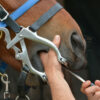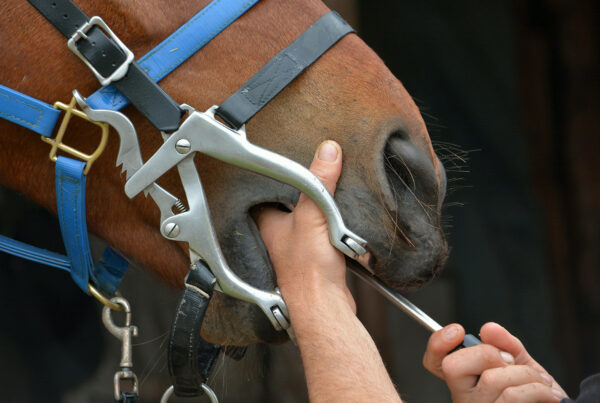Explore horse summer health tips for equine well-being,
including dehydration, heatstroke prevention, sun protection and
sweet itch management.
The summertime brings warm weather and longer days, and on the whole, we all enjoy it, but for our equine friends, it brings its own set of summer-related health problems.
In this guide, we’ll look at summer horse health.
We’ll explore dehydration and how to avoid it, sweet itch and sunburn, and dive into heatstroke symptoms and cooling methods.
So grab a cool drink and read on.
Table of Contents:
- Dehydration in Horses During Summer
- Heatstroke and Heat Exhaustion in Horses
- Sweet Itch – Allergic Reaction to Midge Saliva
- FAQs in Relation to Horse Summer Health
- Conclusion
Dehydration in Horses During Summer
Summer heat can lead to dehydration, a common issue for horses when they lose more water through sweat than they take in.
Horses need plenty of clean water daily; without it, they’re at risk of severe health problems like colic or kidney dysfunction.
To prevent this, ensure your Horse has constant access to fresh water, and keep an eye on their intake levels.
Signs of Dehydration in Horses, What to Look Out For
- Poor capillary refill time (pressing the gum)
- Lethargy or weakness
- Darker urine colour due to concentrated waste products
If your Horse is particularly active during the summer months, Clarendon Equine suggest you consider electrolyte supplementation to replace lost minerals from sweating – keep them healthy and happy. Contact Clarendon Equine today for all your equine supplement needs.
“Keep your Horse healthy this summer by providing constant access to fresh water and monitoring for signs of dehydration. #UKVeterinaryServices #HorseHealth “Click to Tweet
Heatstroke and Heat Exhaustion in Horses
If you suspect your Horse is suffering from heat exhaustion, act fast.
To identify heatstroke and heat exhaustion in horses, it is essential to be vigilant for signs such as sweating profusely, panting heavily, or displaying listlessness.
First, move them to a shaded area immediately.
Next, start cooling procedures by hosing their body with cool water or applying cold towels on their neck and legs.
To prevent these conditions altogether, consider some preventative measures:
- Maintain proper hydration levels by providing constant access to fresh water.
- Avoid exercising during the hottest parts of the day – opt for morning or evening workouts instead.
- Provide shade and promote air circulation in stables using fans or open windows when possible.
Remember: staying vigilant during hot summer months can help keep your Horse free from dangerous health complications.
“Protect your equine friends this summer by staying vigilant for signs of heat stroke and exhaustion. Keep them hydrated, cool and avoid exercising during peak temperatures. #UKVeterinaryServices #HorseHealthTips ️️”Click to Tweet
Protect Your Horse’s Sensitive Skin from Sunburn
Did you know horses can get sunburned too?
Don’t let your Horse suffer from sunburn – take extra precautions during sunny days.
White markings and pink-skinned noses are especially vulnerable to the sun’s harmful rays, so to safeguard your Horse from the sun’s rays, use a sun cream specifically designed for horses.
Pro tip: Apply sunscreen at least 30 minutes before exposure to allow it to absorb fully.
If your Horse isn’t a fan of creams or lotions, try using sun-blocking gear like fly masks with UV protection or nose guards.
After-sun care is also important in maintaining healthy skin. Aloe vera gel or calendula cream balms can help treat skin damage from sun exposure.
Routine checks of your Horse’s sensitive areas will identify potential issues, but prevention is always better than cure.
Protect your Horse’s sensitive skin from sunburn this summer with specially designed equine sunscreen or UV-blocking gear. #UKVeterinaryServices #HorseHealthClick to Tweet
Sweet Itch – Allergic Reaction to Midge Saliva
Although summer brings joy to most of us, it also brings midges that cause sweet itch in horses.
Sweet itch causes severe itching and inflammation around the areas where insects have bitten, so it is essential to identify symptoms early for efficient management and treatment.
Preventative measures involve using fly sheets and face masks during periods of high insect activity and keeping the stable clean. This is the primary defence against flies, along with using equine-specific fly repellents
Identifying Symptoms of Sweet Itch in Horses
- Tail swishing due to irritation at the base of the tail area
- Excessive grooming from other animals trying to alleviate itchiness.
- Inflammation or hair loss around affected areas, such as the mane and tail region
Effective Management Techniques to Prevent Midge Bites:
- Fly sheets: Cover your Horse with lightweight, breathable material designed specifically for this purpose.
- Face masks: Protect sensitive facial areas where flies are more likely to land.
- Daily cleaning routines: Keeping stables clean and tidy reduces the number of breeding grounds for midges.
Treatment Options for Affected Equines
Regular grooming and maintaining a healthy coat can also help alleviate discomfort caused by sweet itch.
Consult your vet for potential treatment regimens, including anti-inflammatory drugs or topical ointments to alleviate affected regions.
Remember, early intervention is crucial in managing this condition effectively.
Protect your Horse from midges with fly sheets and face masks this summer. Recognise symptoms of sweet itch early for effective treatment. #UKVeterinaryServices #HorseHealthClick to Tweet
FAQs in Relation to Horse Summer Health
What’s the ideal temperature for horses?
Horses can handle up to 30°C (86°F), but higher temperatures combined with humidity can be tough on them, so keep an eye on your Horse and provide shade, water, and ventilation.
Is it okay to hose down my Horse in hot weather?
Yes, hosing down your Horse with cool water can help lower their body temperature and prevent overheating, but make sure to scrape off excess water to speed up the cooling process.
Can hot weather cause laminitis?
Hot weather itself doesn’t cause laminitis, but it can contribute to conditions that increase the risk of developing this painful hoof condition, such as dehydration or excessive grazing on lush grasses.
Conclusion
Seasonal changes can bring various challenges for equine health, including temperature fluctuations, changes in feeding habits, and parasite activity.
Horses need appropriate care adjustments throughout the year to maintain optimal health and performance levels.
Don’t let your Horse suffer this summer – keep them hydrated with fresh water and electrolytes to prevent dehydration and protect their sensitive skin from sunburns with sunscreen or sun-blocking gear.
And don’t forget sweet itch – it can be a real pain. Prevent midge bites and treat affected horses for a happier summer.
For more information on horse summer health, contact Clarendon Equine today for the best veterinary care for your equine friend.








